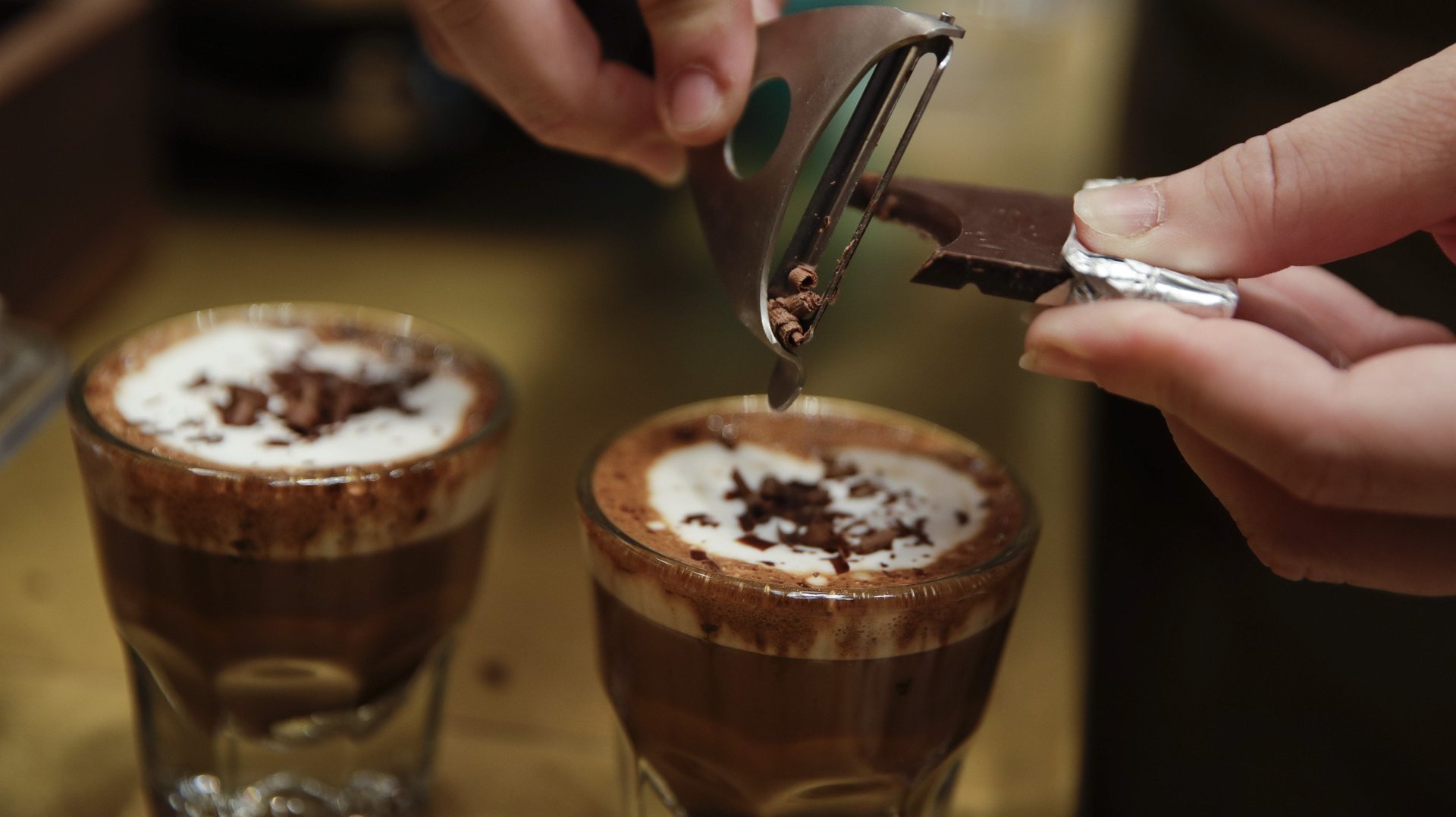Just thinking about coffee can improve your focus, researchers say
The source of coffee’s powerful stimulating effects may not be limited to the caffeine in it, or even to its rich, distinct aroma. A new study suggests that merely being exposed to cues about coffee is enough to perk up the mind, and make us more likely to concentrate on the task at hand, while the same could not be said for tea.


The source of coffee’s powerful stimulating effects may not be limited to the caffeine in it, or even to its rich, distinct aroma. A new study suggests that merely being exposed to cues about coffee is enough to perk up the mind, and make us more likely to concentrate on the task at hand, while the same could not be said for tea.
Crucially, however, this was only found to be true for people who psychologically link coffee with ideas of alertness, ambition, and productivity, as is the case in western cultures. The Australian and Canadian researchers behind the study saw that for participants from tea-drinking cultures like Japan, China, and Korea, coffee cues were no more potent than those for its more gently caffeinated cousin.
The study, published in Consciousness and Cognition (paywall), has not yet been replicated. It also involved a relatively small sample size in some of the experiments (by design, note the authors). Nevertheless, the research, led by Eugene Chan, a senior lecturer in the marketing department at Monash University, and Sam Maglio, associate professor of marketing and psychology at the University of Toronto Scarborough, poses a compelling question: During the inevitable mid-afternoon slump, could coffee-themed imaginings eliminate a need for the genuine article (and save you from the vexing dilemma of whether to “buy the f***ing latte” or not)?
The researchers believe it could. To lend credence to their hypothesis, Chan and Maglio’s paper points to well-studied effects of other environmental cues on behavior, such as the established connection between subliminal messages about gender stereotypes in math and poorer performance on math tests. They also cite a paper that found just viewing the McDonald’s logo can make a person feel impatient (paywall), because we’re used to immediate service at the fast-food chain.
In the coffee study, the researchers ran four experiments involving lab and online tests. To plant ideas about coffee or tea in the subjects’ minds, they asked everyone to work to brainstorm slogans for a (fake) multinational company called Arisokraft. They also measured participants’ heart rates, and surveyed the subjects about future plans. Sure enough, they found elevated heart rates in the subjects who grew up in Western countries (mostly Canada, Australia, and the US) and were exposed to the coffee conditions, as compared to the tea conditions. Those subjects were also more likely to think in specific, rather than abstract, terms about future tasks, the results showed.
According to what psychologists call “construal level theory,” people can process information or imagine events in either broad or specific modes, and the way we behave differs accordingly. “For example, think of the action ‘sitting in class,’ Chan wrote in an essay about his research for Thrive Global. “When you think about this behaviour, do you see yourself primarily ‘paying attention to the professor’ or ‘sitting down physically on a chair?’ The first is more abstract, focusing on the reasons why you would sit in class, but the second is more concrete, focusing on how you would sit in class.” Coffee cues, he said, led to more of the latter, which allows you to pay attention to details.
Future research, with larger sample sizes, is needed to confirm these effects and to parse the stimulating consequences of say, black diner coffee and a milky espresso drink, or various strains of tea, the authors note in their paper. One day, they propose, it might be possible to match the task at hand with the appropriate level of mind-generated arousal.
For now, Chan believes that “[we] need to better understand the ‘meanings’ and ‘beliefs’ we assign to foods and beverages,” he writes. What we feed our minds has a lot to do with what it feeds us in return.
Arguably, for coffee businesses in countries like China or Korea, it may also be an indication of how much more work they need to do if they hope to embed coffee’s promised buzz in the public imagination.